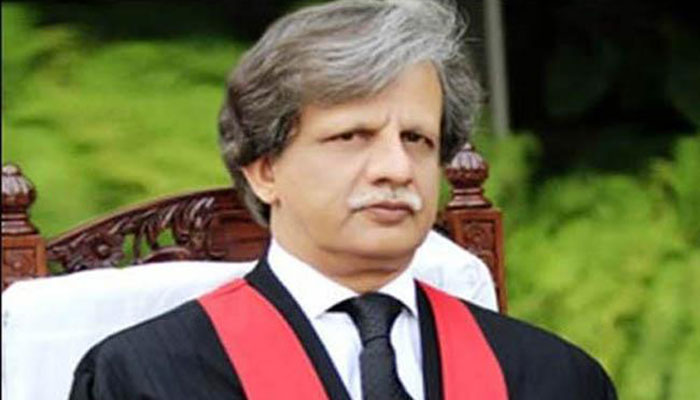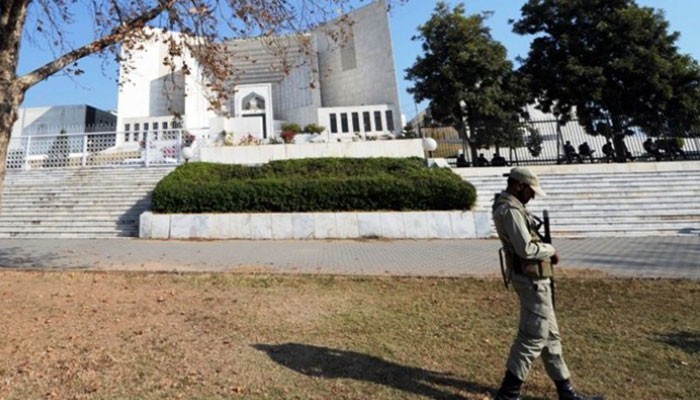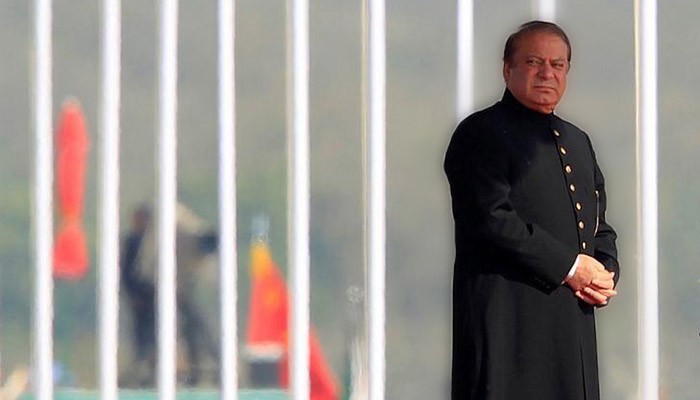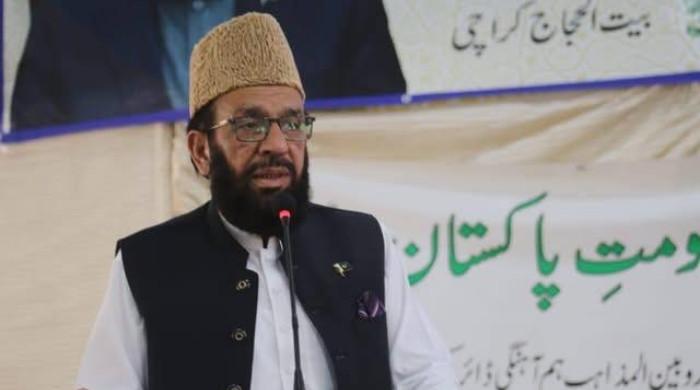Disqualification under Article 62 (1)(f) to be for life, rules Supreme Court
Five-member larger bench headed by CJP had reserved decision on around dozen petitions seeking timeframe of disqualification
April 13, 2018
ISLAMABAD: The Supreme Court ruled on Friday that lawmakers disqualified under Article 62(1)(f) of the Constitution will be unable to contest elections for the rest of their life.
Justice Umar Ata Bandial read out the verdict, which seals the political fate of former prime minister Nawaz Sharif, Pakistan Tehreek-e-Insaf leader Jahangir Tareen and other lawmakers disqualified under the said article.
In its judgment, the Supreme Court has observed that an election candidate who has committed misconduct falling within the terms of Article 62(1)(f) cannot be compared to the case of an ex-convict under Article 63(1)(h) as he has not paid a personal price for his delinquent act.
“Considering that the Constitution does not fix the period of incapacitation of such a judgment debtor shows a clear intention that the lack of qualification under Article 62(1)(f) of the Constitution should extend so long as the declaration of law envisaged in Article 62(1)(f) remains in the field,” the judgment states in relation to the permanency of disqualification.
'Lawmakers didn't set time-frame themselves'

Justice Sheikh Azmat Saeed has also written an additional note in the judgment, spread over 60 pages.
In the additional note, Justice Saeed has observed that the apex court can neither add nor subtract anything from the Constitution.
He has stated further that lawmakers knowingly did not set a time-frame for disqualification under Article 62 (1)(f).
Justice Saeed also remarked that during the hearing of the case, some lawyers argued that the article’s clause is very strict.
He held that those who made these arguments were either former parliamentarians or a part of Parliament when the amendment was made.
Decision reserved
On February 14, a five-member larger bench, headed by Chief Justice of Pakistan Justice Saqib Nisar, had reserved the verdict while hearing several petitions seeking to determine the time-period a lawmaker would remain disqualified for after being de-seated in violation of Article 62(1)(f) and other election laws.
During the hearing, the court had observed that the disqualification will continue for as long as the declaration [signed by electoral candidates declaring them honest] holds, adding that the 18th Amendment, passed in 2010, did not determine a time period for disqualification.
At an earlier hearing on February 8, the chief justice had also acknowledged the ambiguity of Article 62(1)(f) of the Constitution.
'Sadiq and Ameen'
Article 62(1)(f) reads: "A person shall not be qualified to be elected or chosen as a member of Majlis-e-Shoora (Parliament) unless-...he is sagacious, righteous and non-profligate, honest and ameen, there being no declaration to the contrary by a court of law."
On December 15, last year, the Supreme Court had disqualified Tareen for failing to declare an offshore company and a foreign property in his election nomination papers.
Similarly, the then prime minister Nawaz was disqualified by the Supreme Court on July 28, 2017, for concealing in his nomination papers the receivable income from his son's company in UAE.
'Disqualification should last till next election'
On February 6, Nawaz had informed the court that he would not be partaking in the proceedings after the bench had issued him notices.
The former premier had maintained that in his understanding "to take part in election process is a fundamental right and therefore no perpetual disqualification can be imposed on someone by interpreting Article 62 of the Constitution of Islamic Republic of Pakistan."
He had further said that "a time limit could have been provided by the Parliament but since it has not been done so, the issue of qualification under Article 62 is confined only to the election in question."
"I being a strong proponent of democracy believe that it is the right of people of Pakistan to participate in the process of election and to reject or elect candidate(s) of their choice. They enjoy an inalienable right to elect their representatives through a true democratic process and not be given the list of selective people through the process of elimination."














